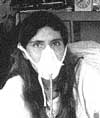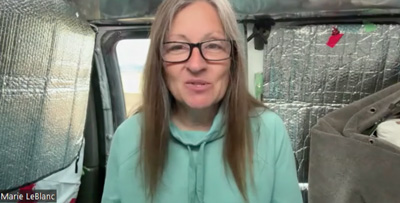People with MCS who have few resources end up as housing refugees
 source: raggededgemagazine.com
source: raggededgemagazine.com
Barbara Eaton, president of a regional chapter of The National Association of the Physically Handicapped, wrote about housing issues for those afflicted by chemical sensitivities in the March/April 2003 issue of Ragged Edge Magazine, a magazine focused on disability rights. Unfortunately, not a lot has improved in this area for those suffering with environmental illness since the article was published.
“You should see my beautiful apartment,” says Lynn Nelson. “I really wish I could live in it.”
Nelson has what is called “multiple chemical sensitivity,” frequently shortened to MCS. She sleeps in her car, even though she has a government-subsidized apartment. “When I went on disability for MCS, I feared I would be sleeping in the streets. I was thrilled to find out that I could get this kind of housing.
“Yet, here I am — in the street or begging friends to let me sleep in their driveways, or sleeping behind my church.”
Nelson discovered what thousands of others with severe MCS have learned: that their conjoined and rented living spaces are impossible to keep free of the plethora of volatile organic compounds emitted by neighbors’ perfumes, cigarette smoke, pesticides, laundry products, or that sift in from renovations in the building and from routine lawn maintenance. When people with MCS move in, they almost always find that residues of perfume and pesticides have saturated the porous wood surfaces, carpets and carpet padding — residues in amounts high enough to sicken them. And they are very difficult to remove.”










0 Comments